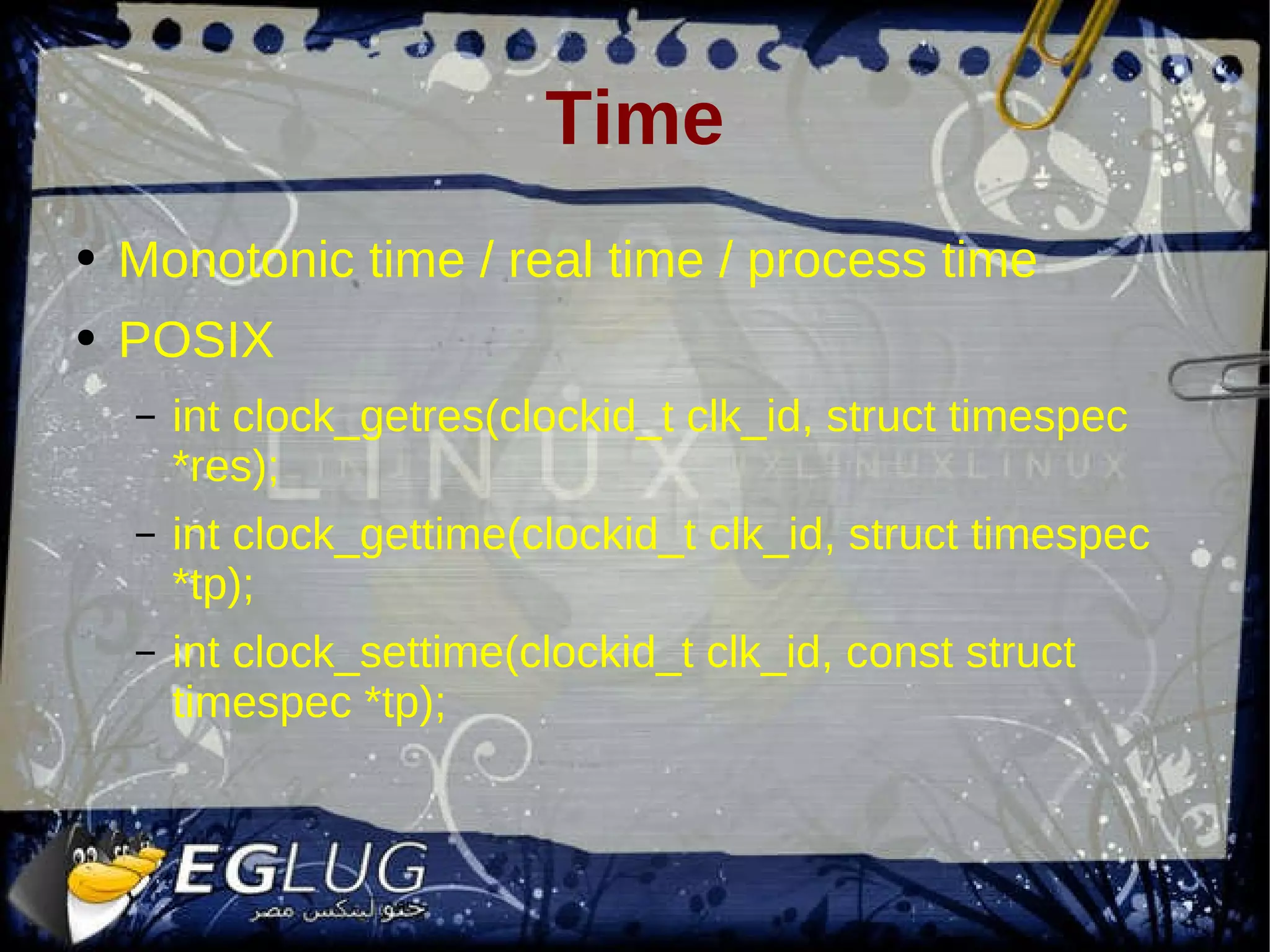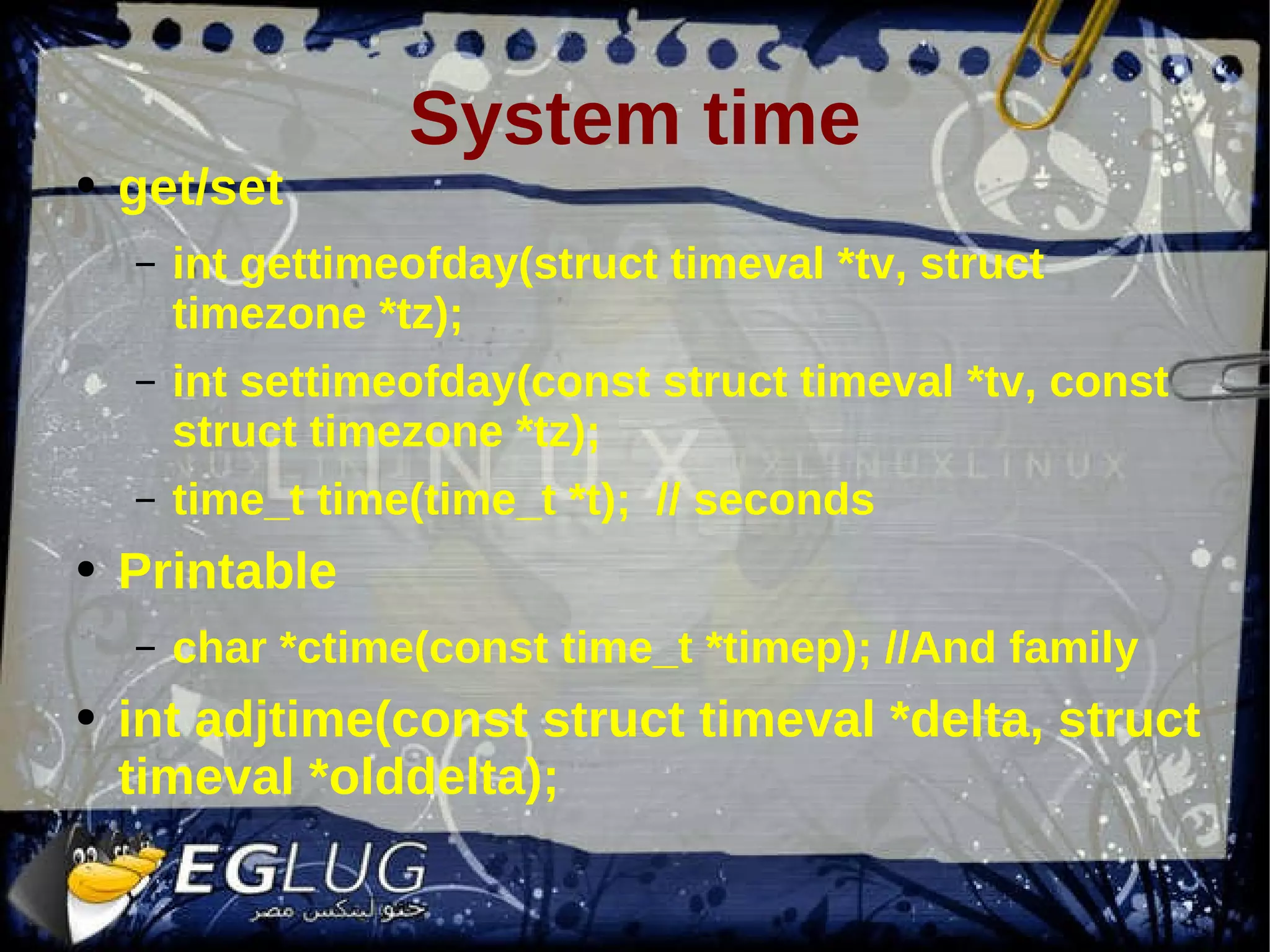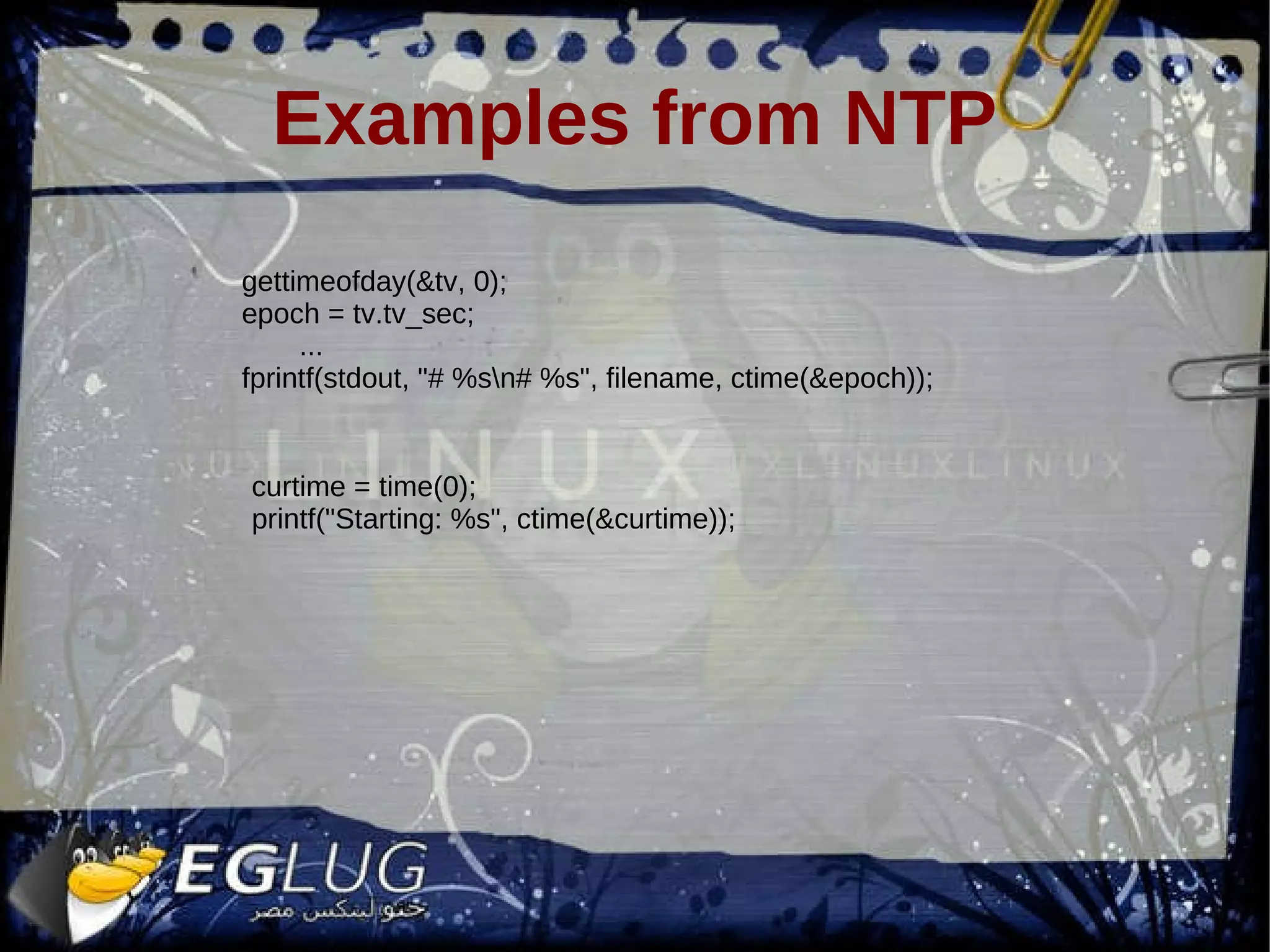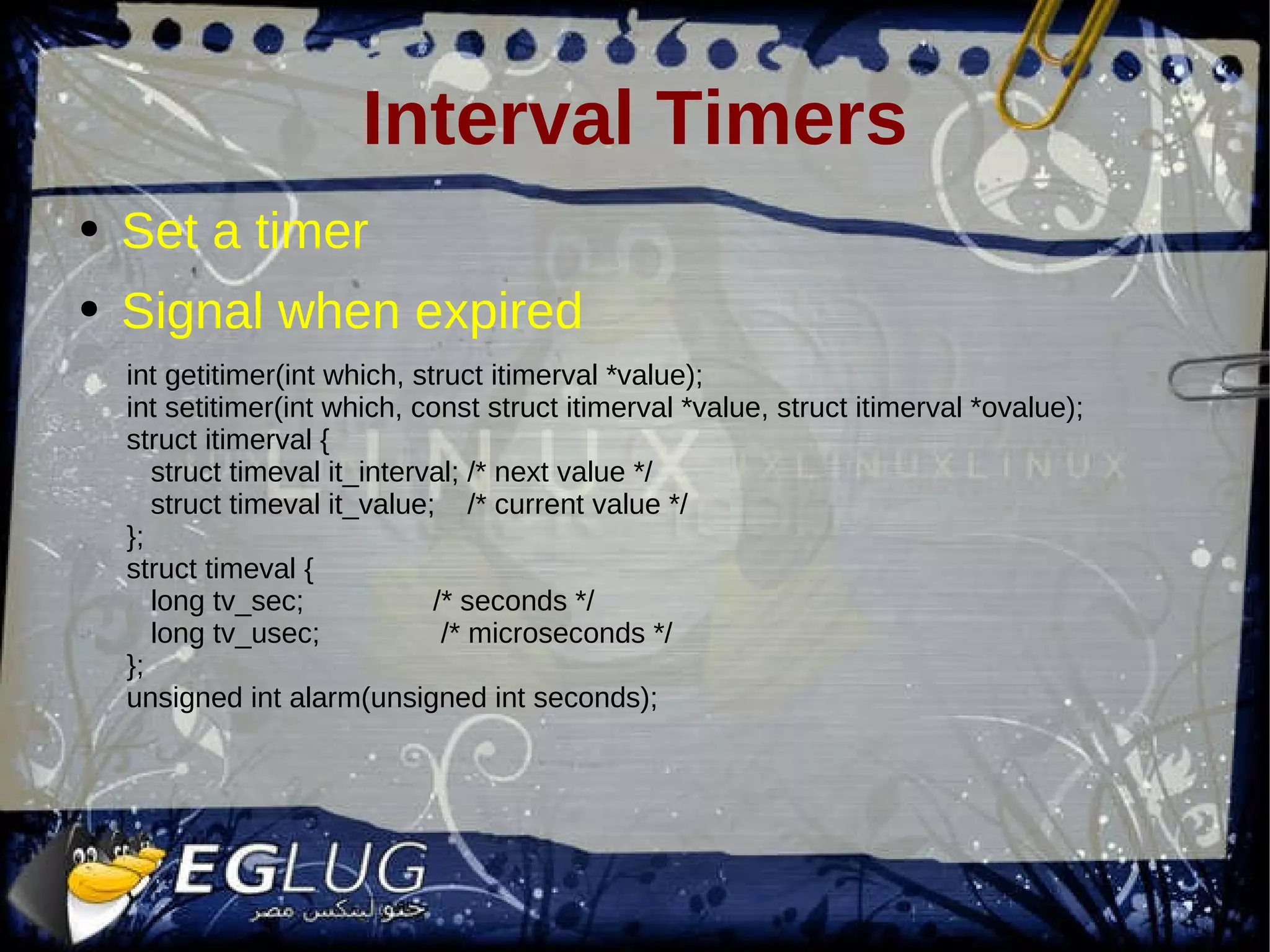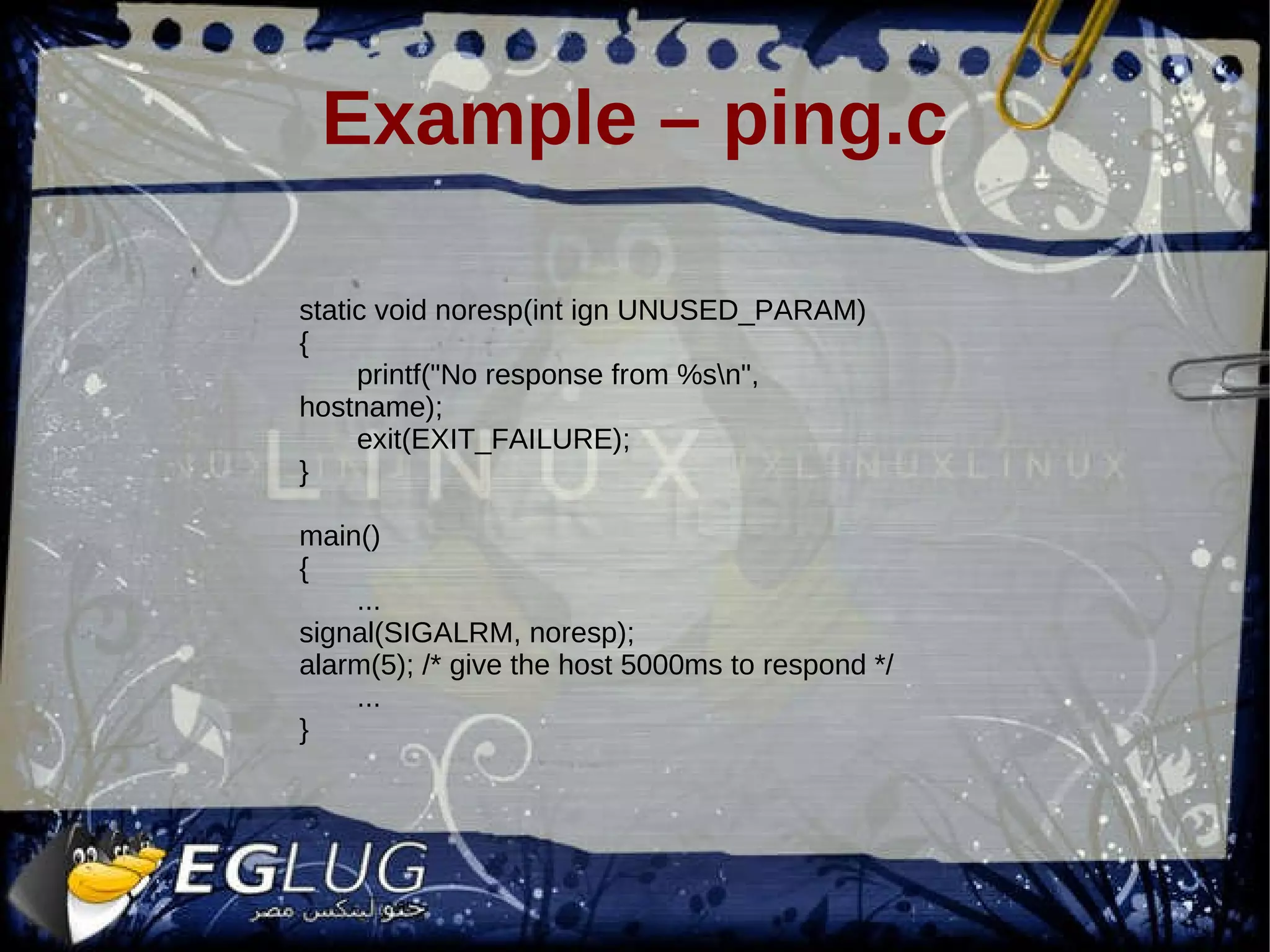The document discusses various topics related to user-space system programming in Linux, including sending and handling signals, signal sets, masking signals, scheduling, inter-process communication (IPC), and timing functions. It provides examples of how to use signals, set priorities, affinity, timers, and IPC between processes.

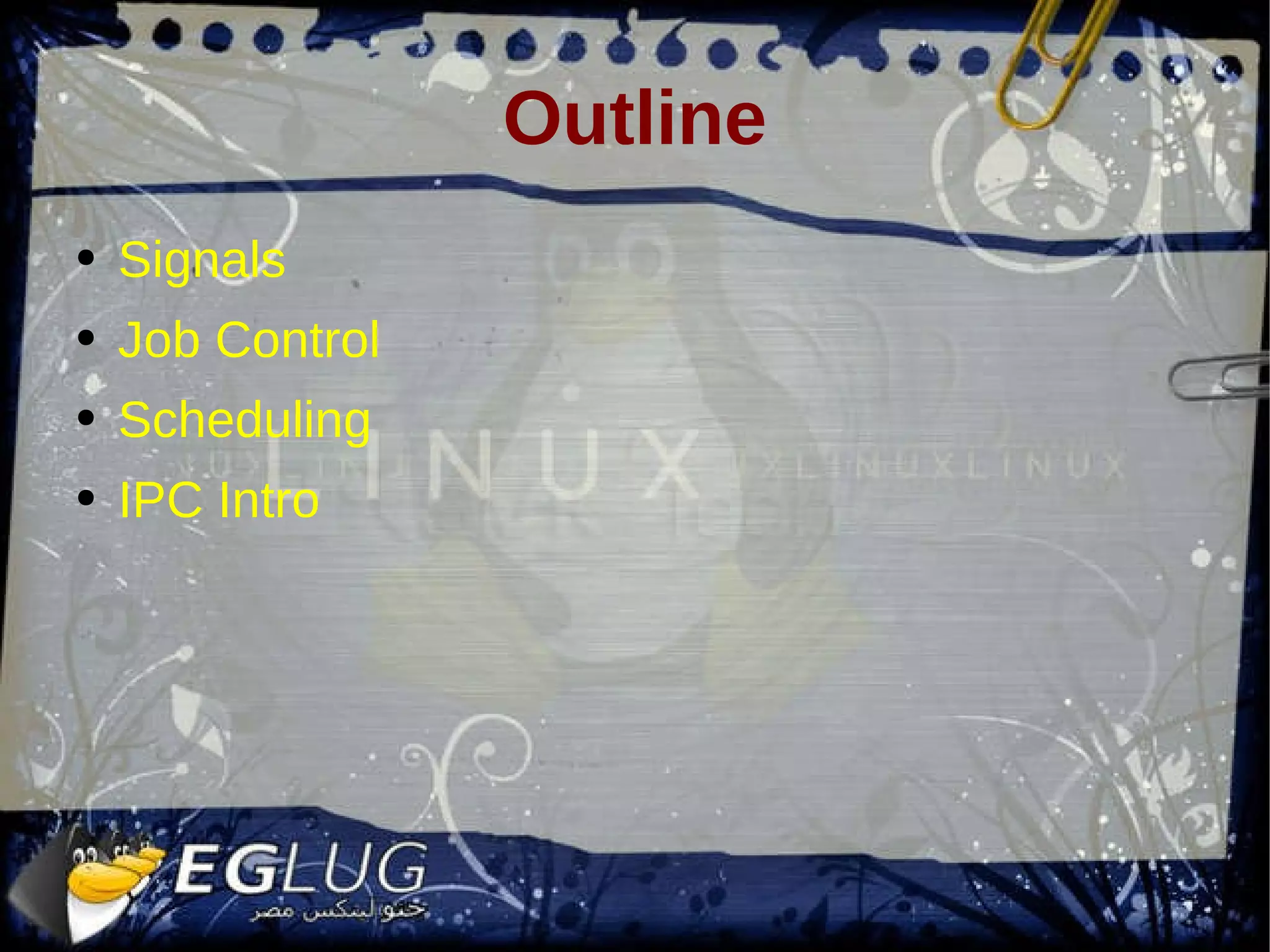
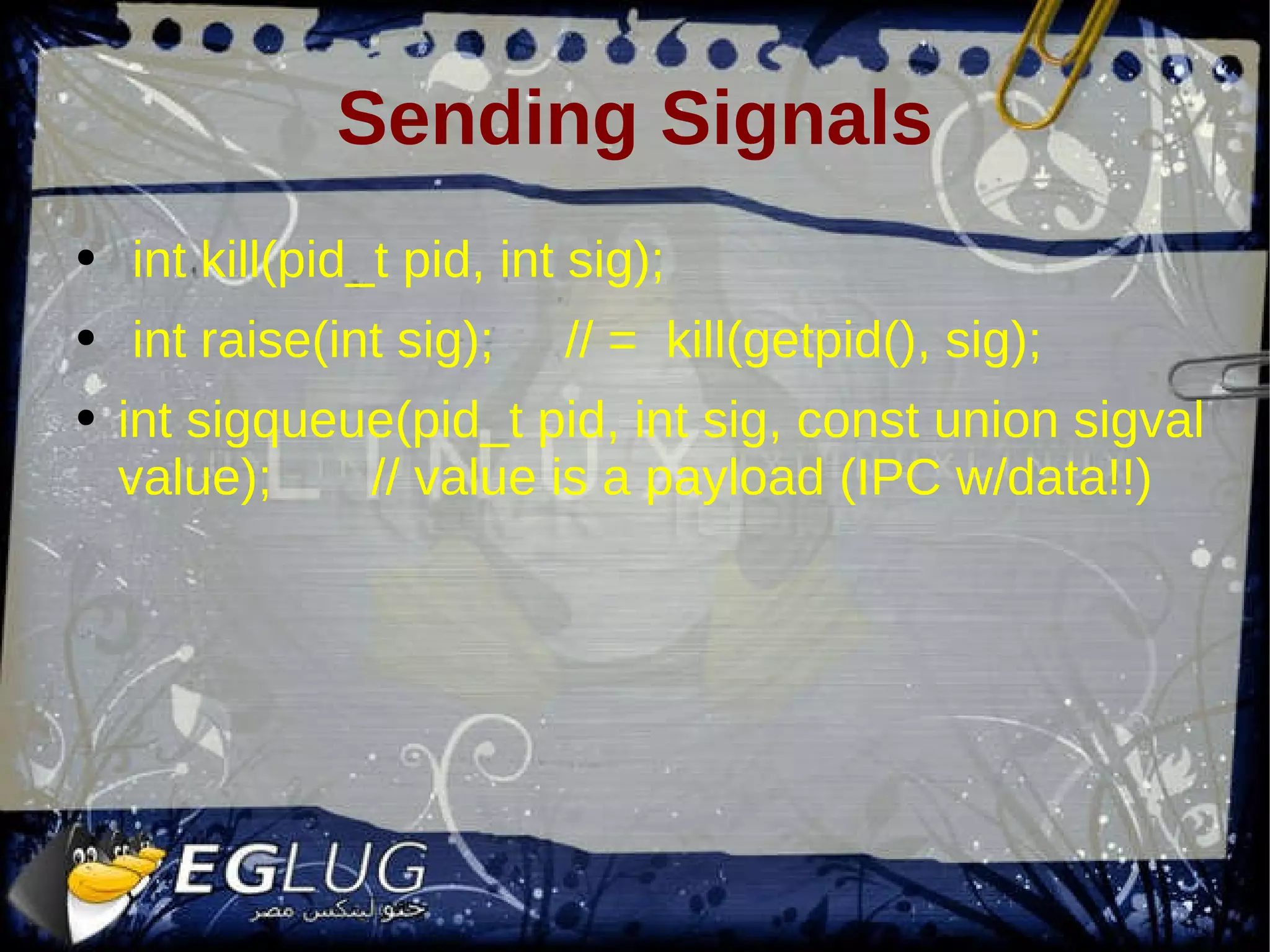
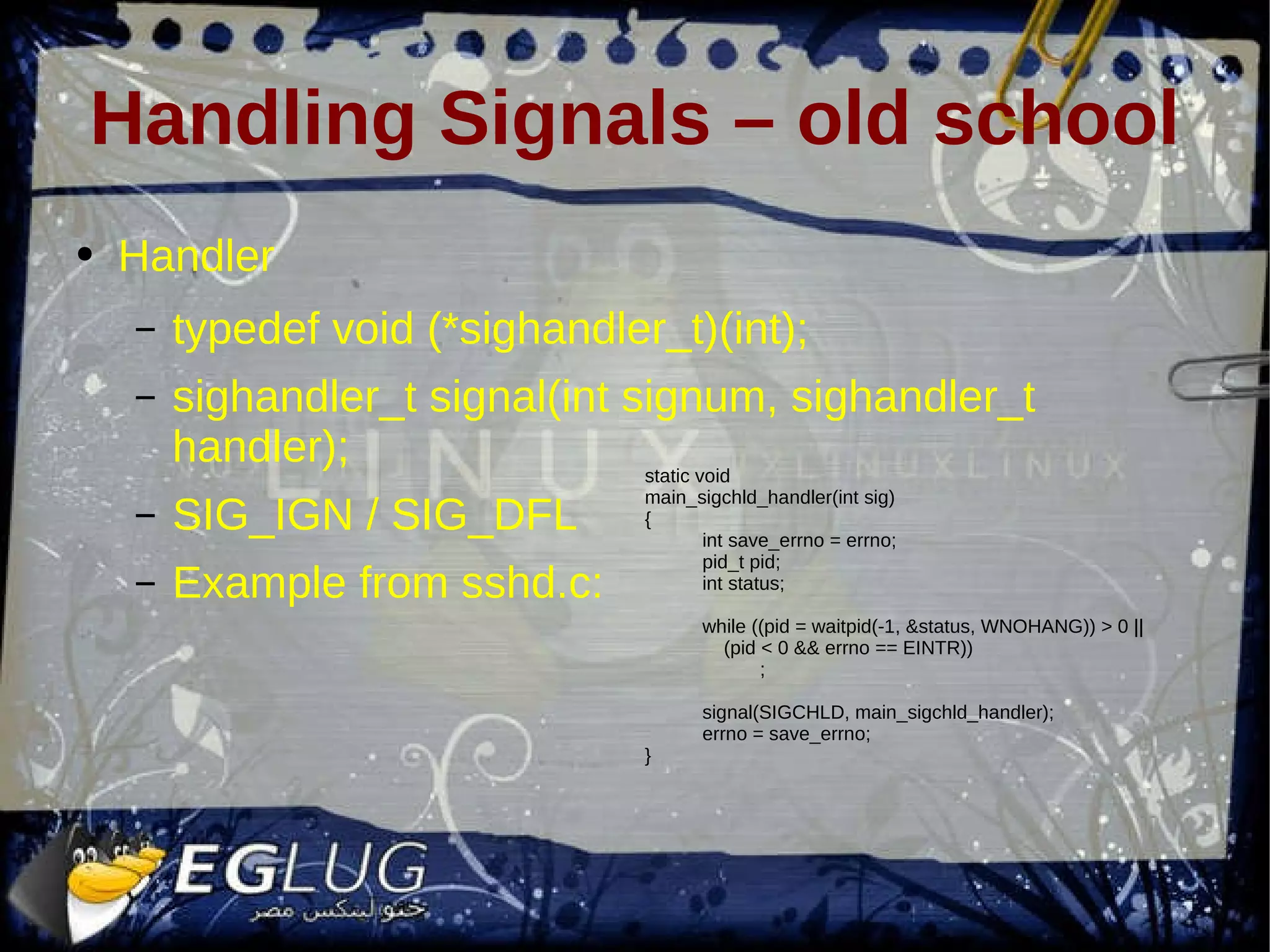
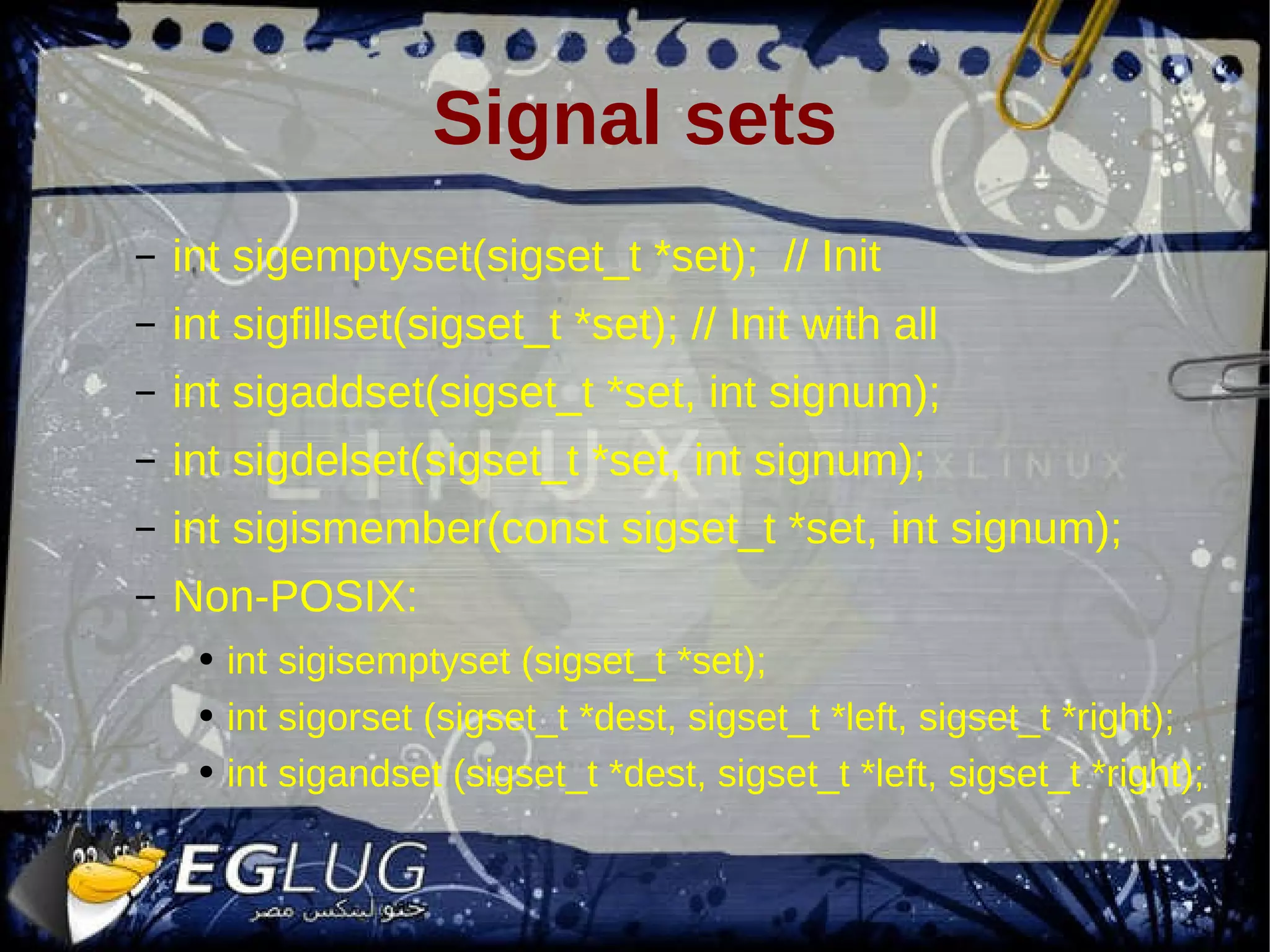
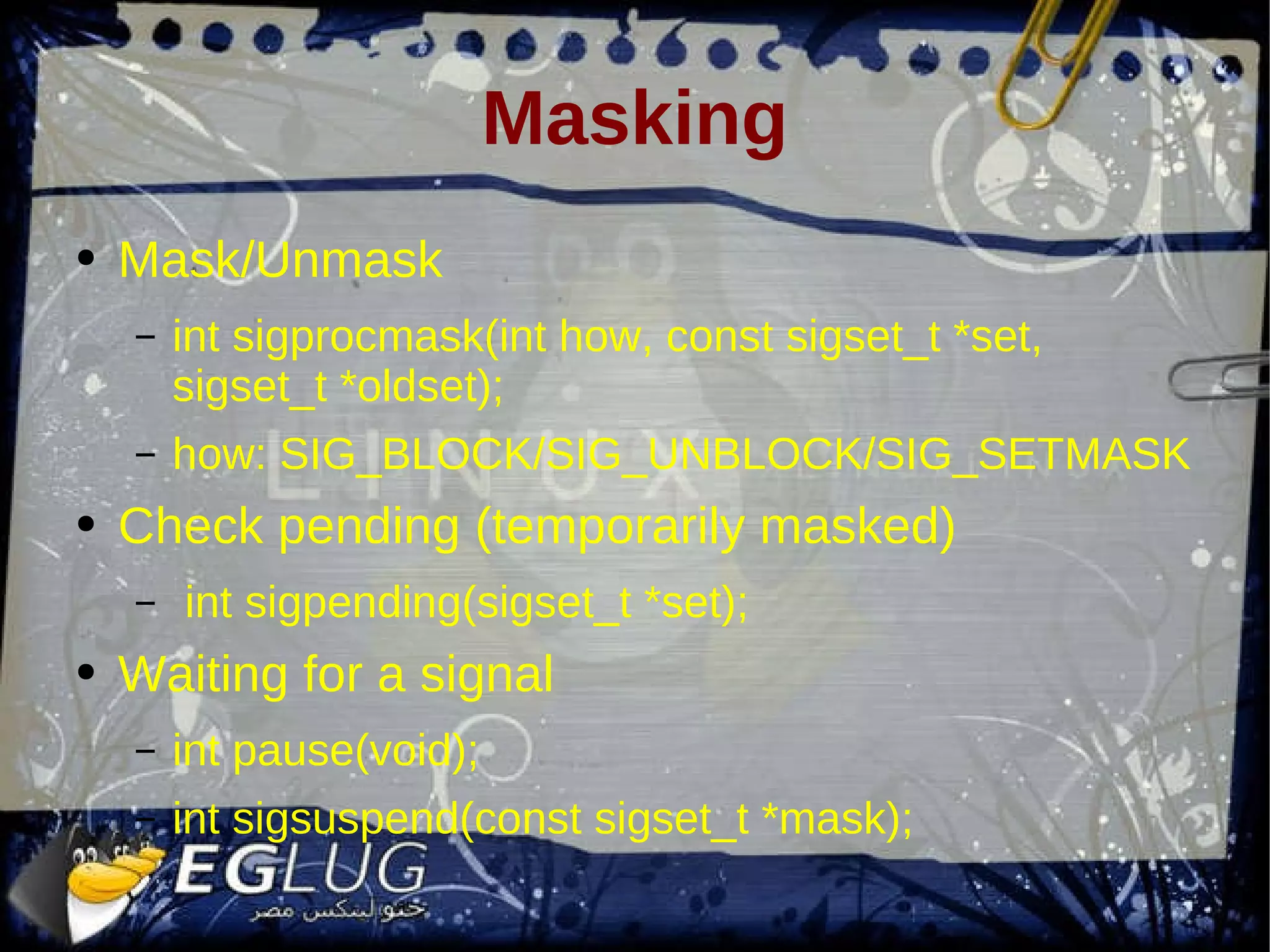
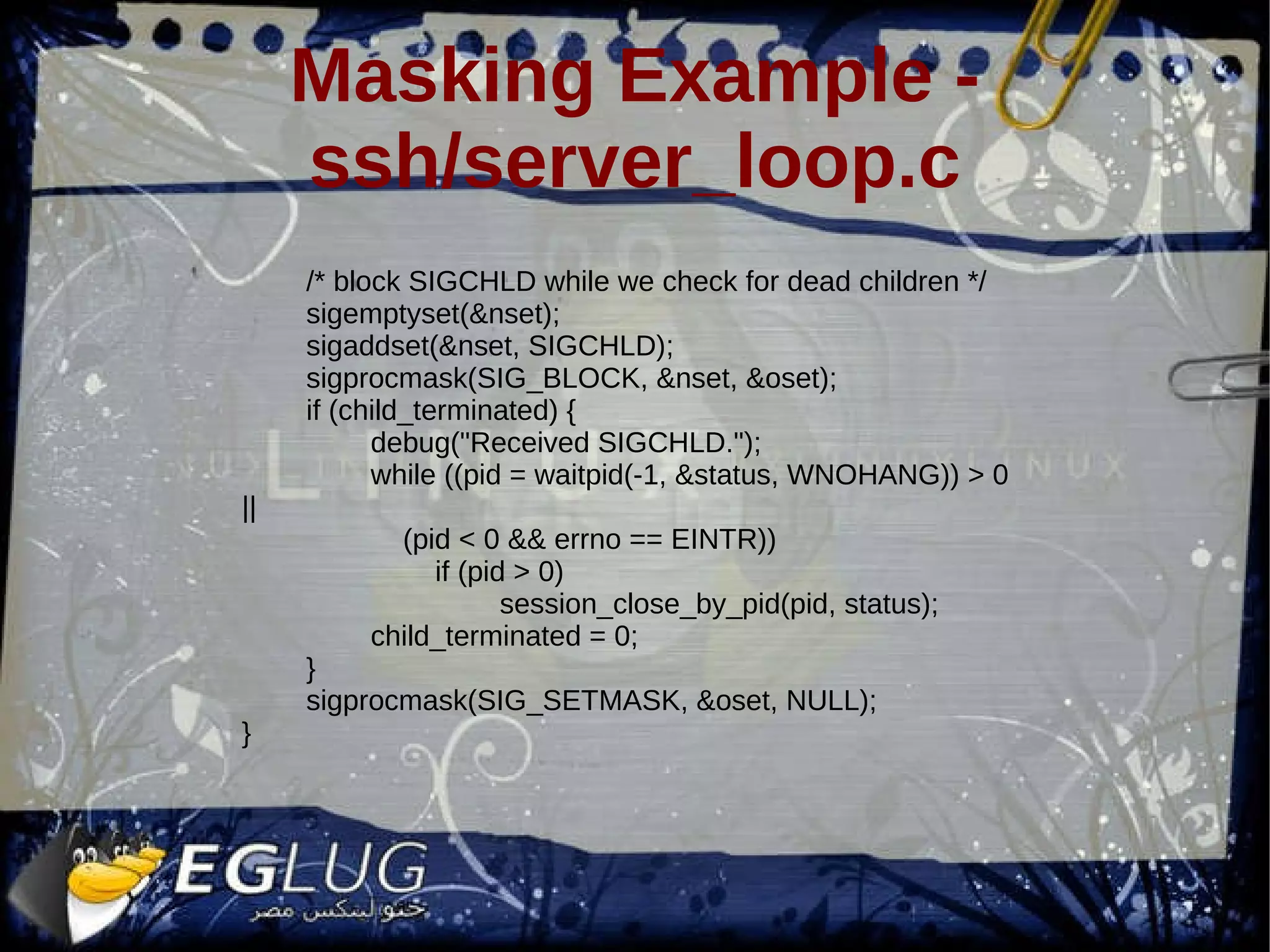
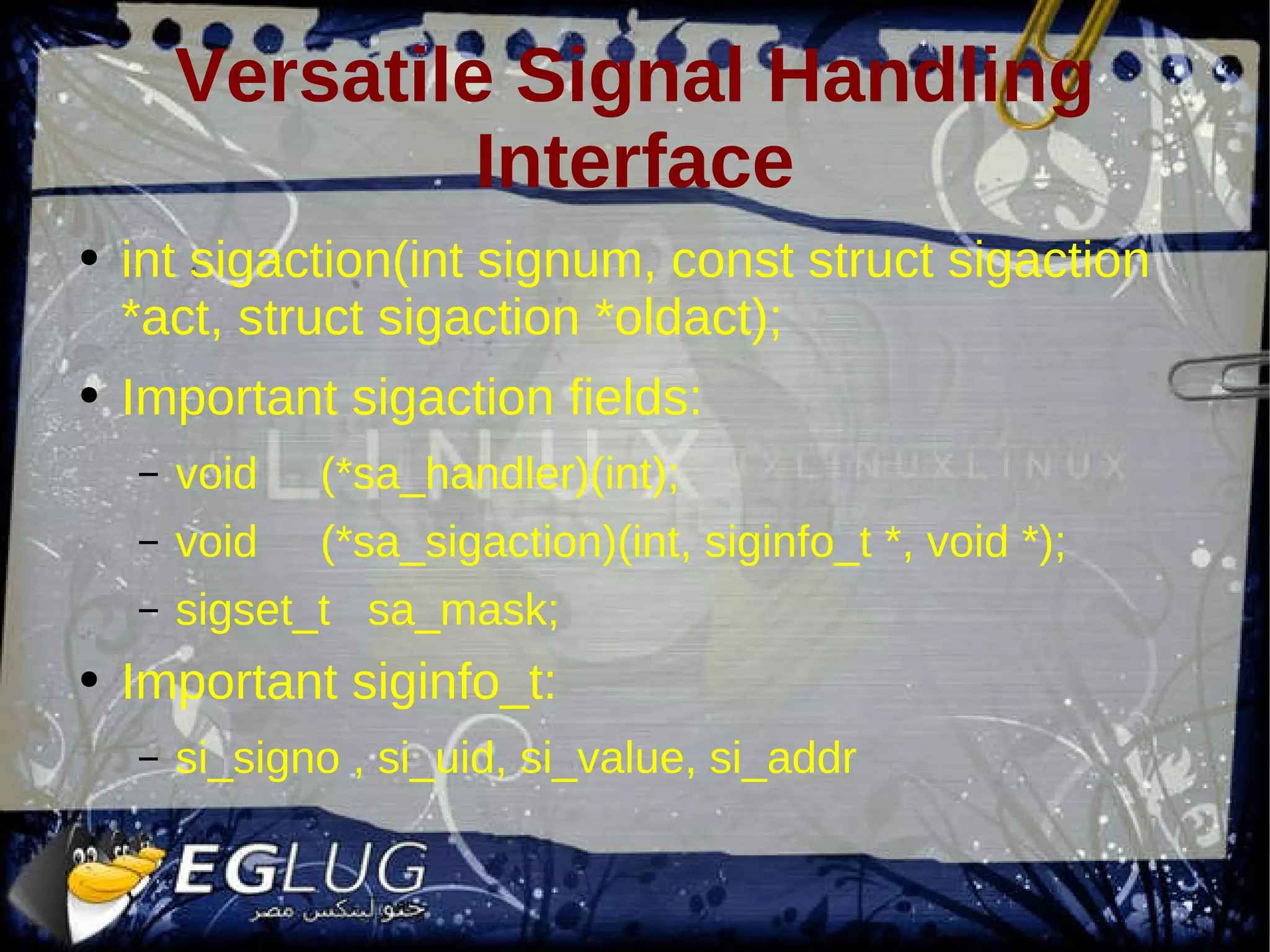
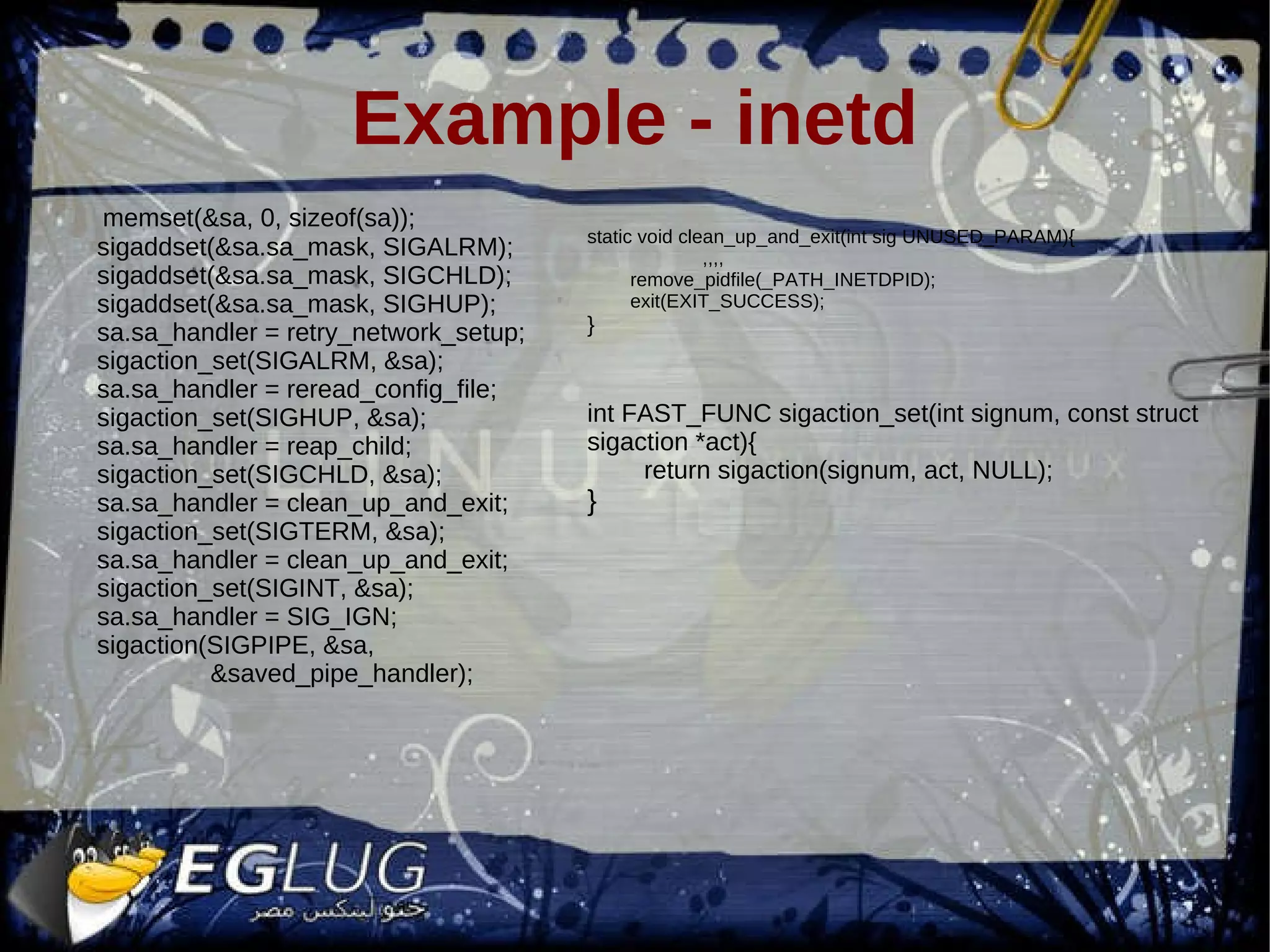
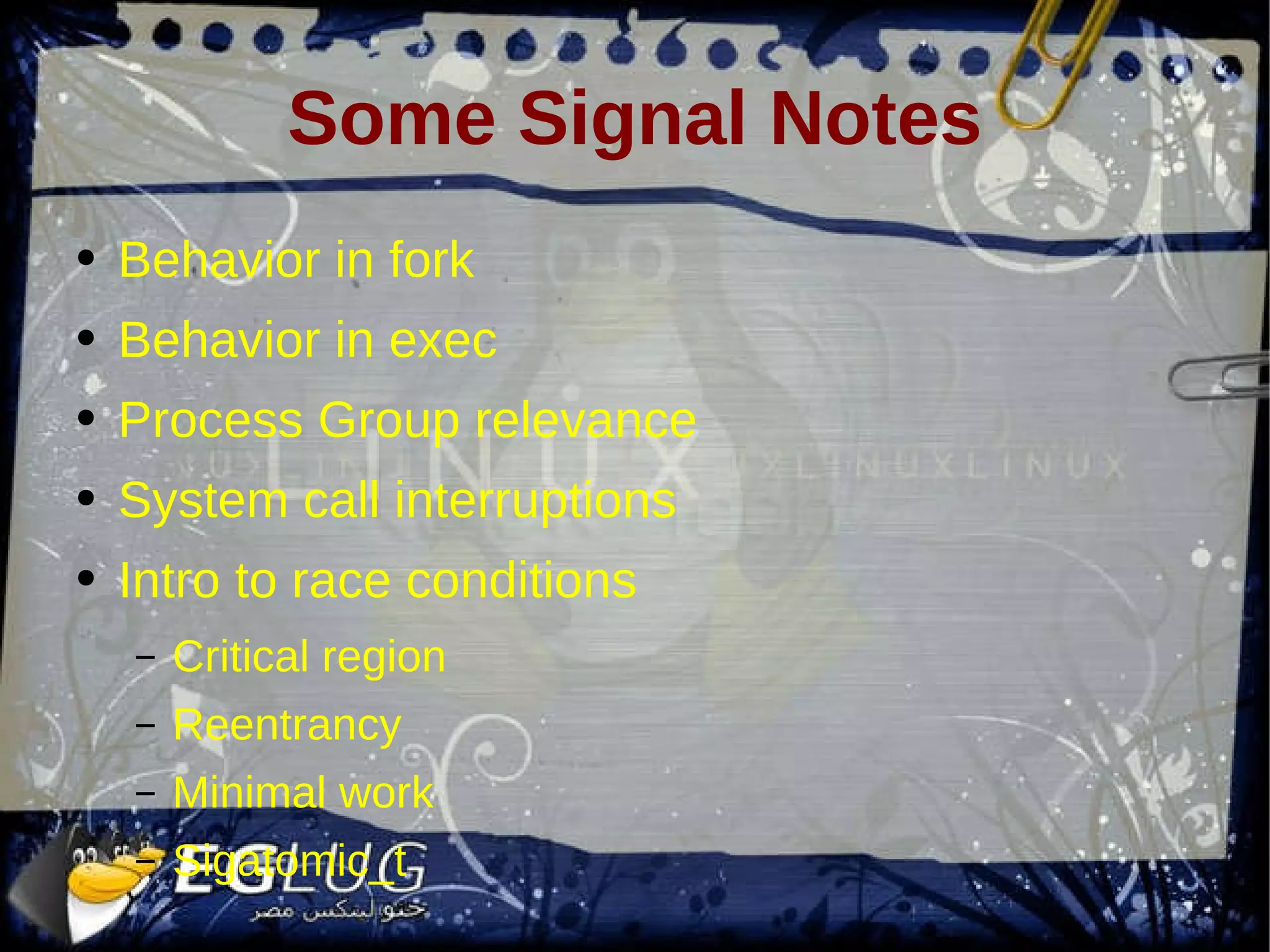
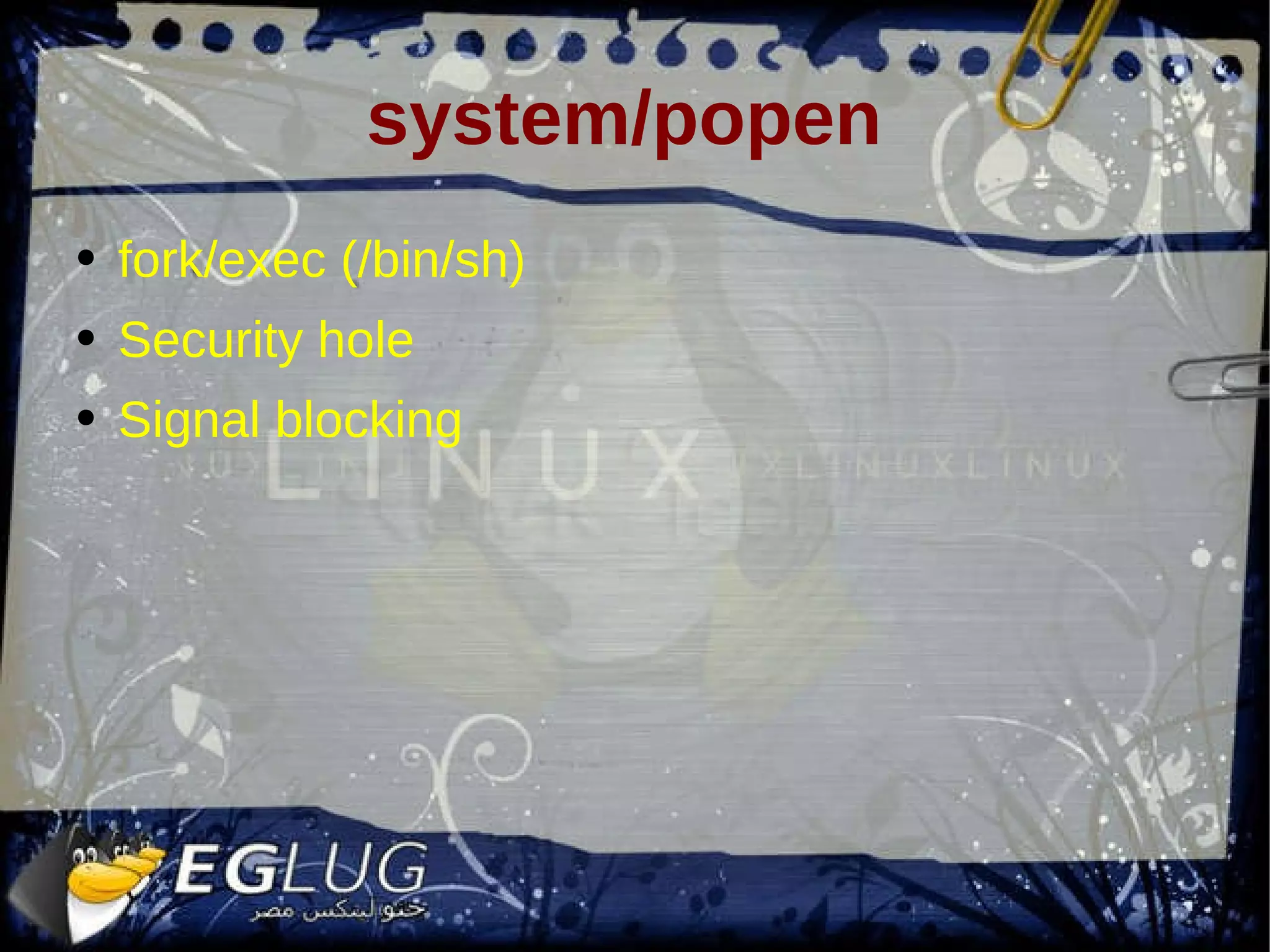
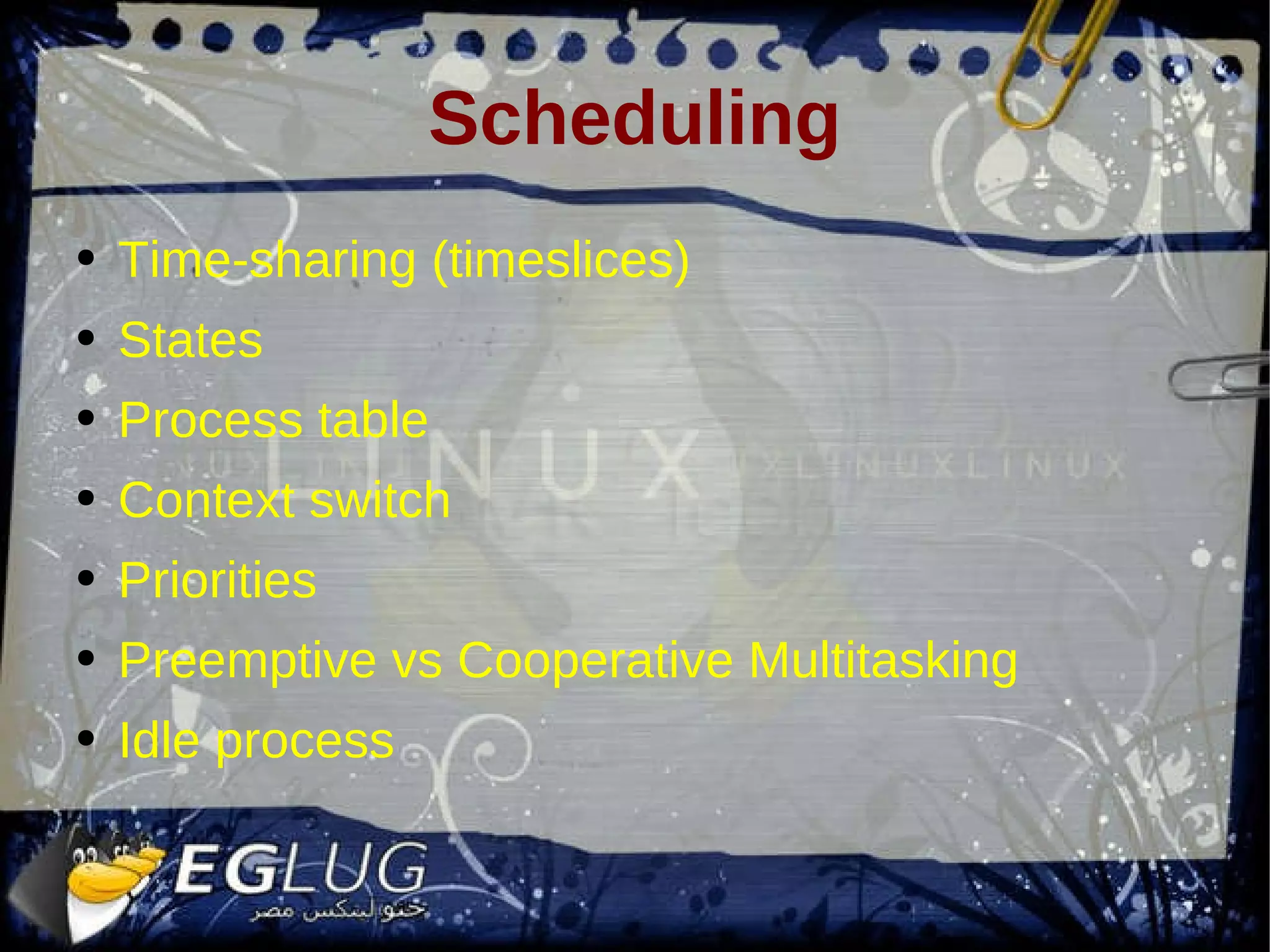
![2.4 Scheduling Nice values [-20,19], -20 is not nice, i.e. high priority Time slice length & run queue order Superuser to decrement int nice(int inc); // nice(0) is current get/set priority int getpriority (int which, int who); int setpriority (int which, int who, int prio); Absolute PRIO_RPOCESS, PRIO_PGRP, PRIO_USER](https://image.slidesharecdn.com/session12-090315114114-phpapp02/75/Sysprog-12-13-2048.jpg)
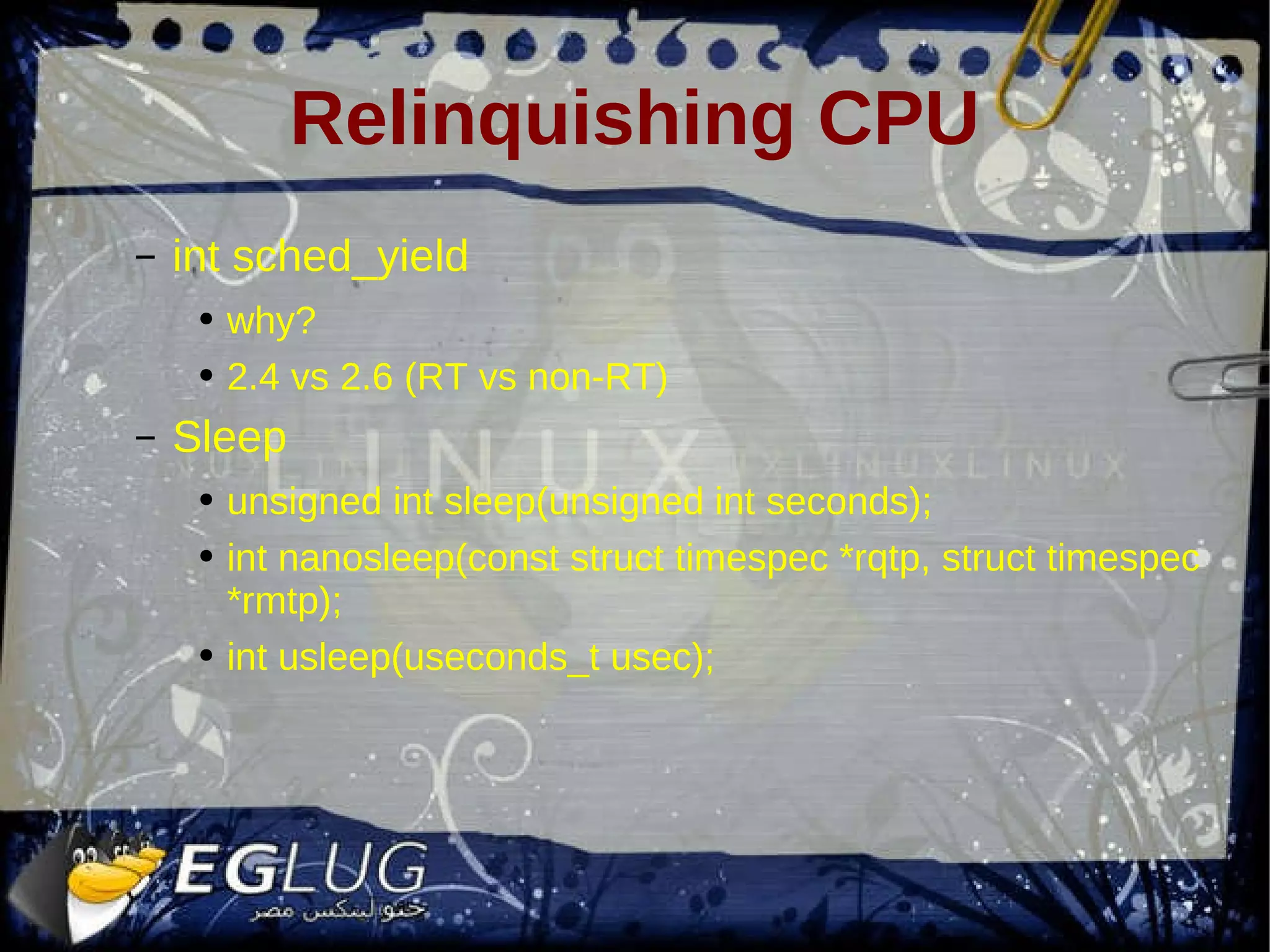
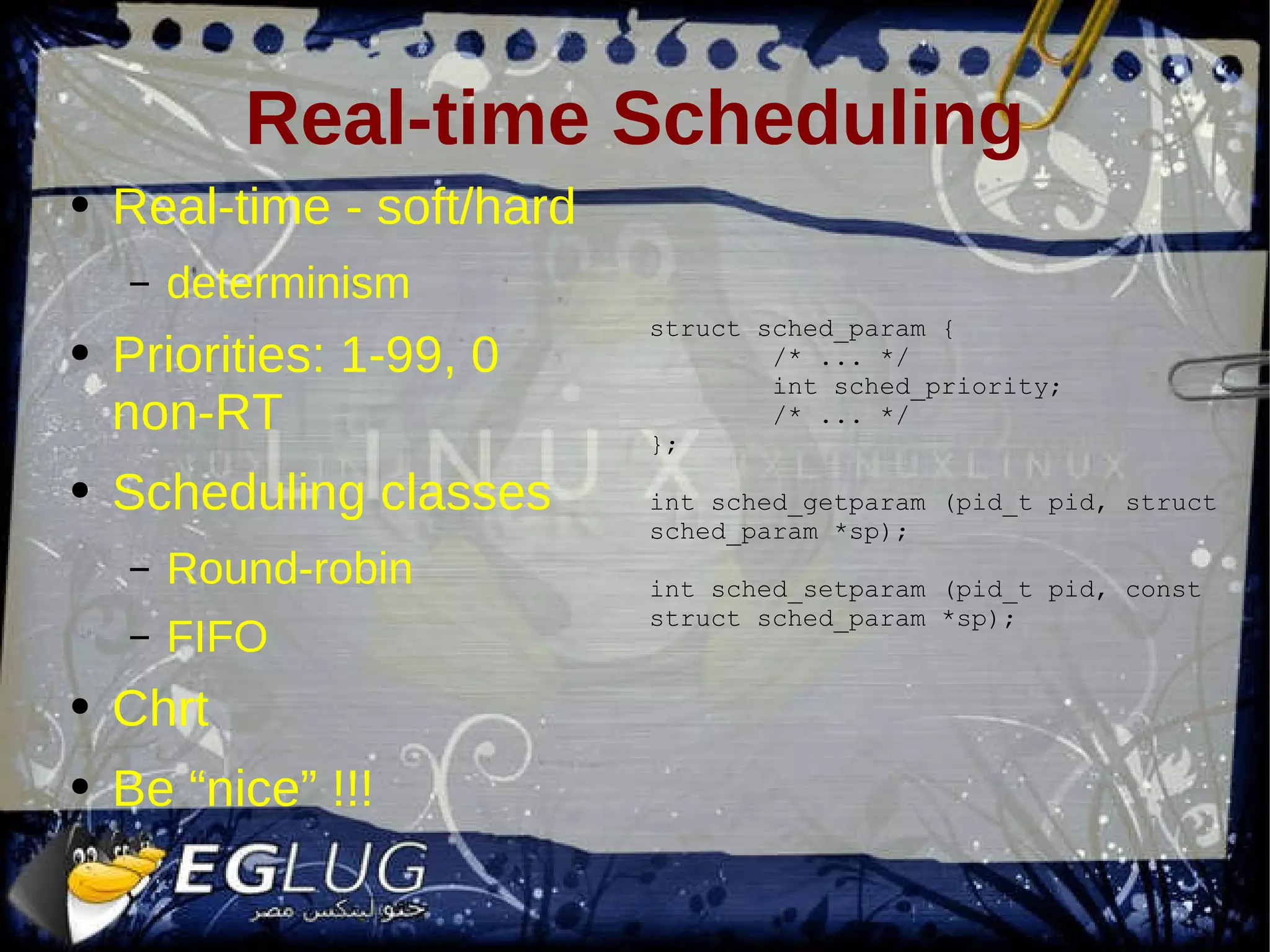
![Processor Affinity SMP Affinity: Which processor? By default, try the same and hereditary Do I care? -- Cache coherency Do I really care? http://www.linuxjournal.com/article/6799 pid = atol(argv[1]); sscanf(argv[2], "%08lx", &new_mask); if (sched_getaffinity(pid, len, &cur_mask) < 0) { perror("sched_getaffinity"); return -1; } printf("pid %d's old affinity: %08lx\n", pid, cur_mask); if (sched_setaffinity(pid, len, &new_mask)) { perror("sched_setaffinity"); return -1; } if (sched_getaffinity(pid, len, &cur_mask) < 0) { perror("sched_getaffinity"); return -1; }](https://image.slidesharecdn.com/session12-090315114114-phpapp02/75/Sysprog-12-16-2048.jpg)
